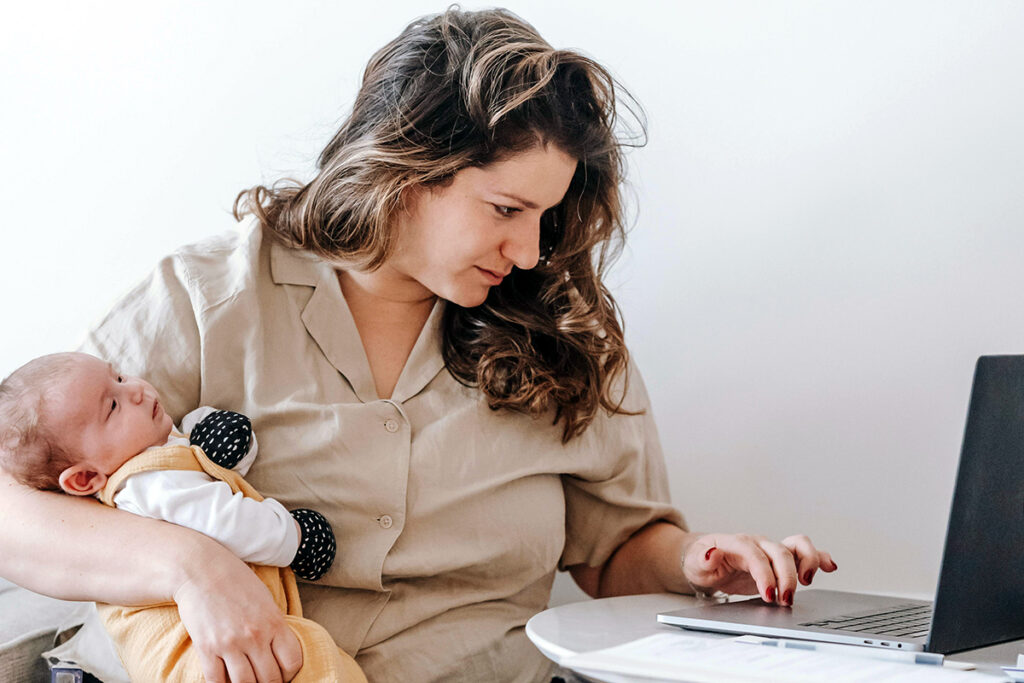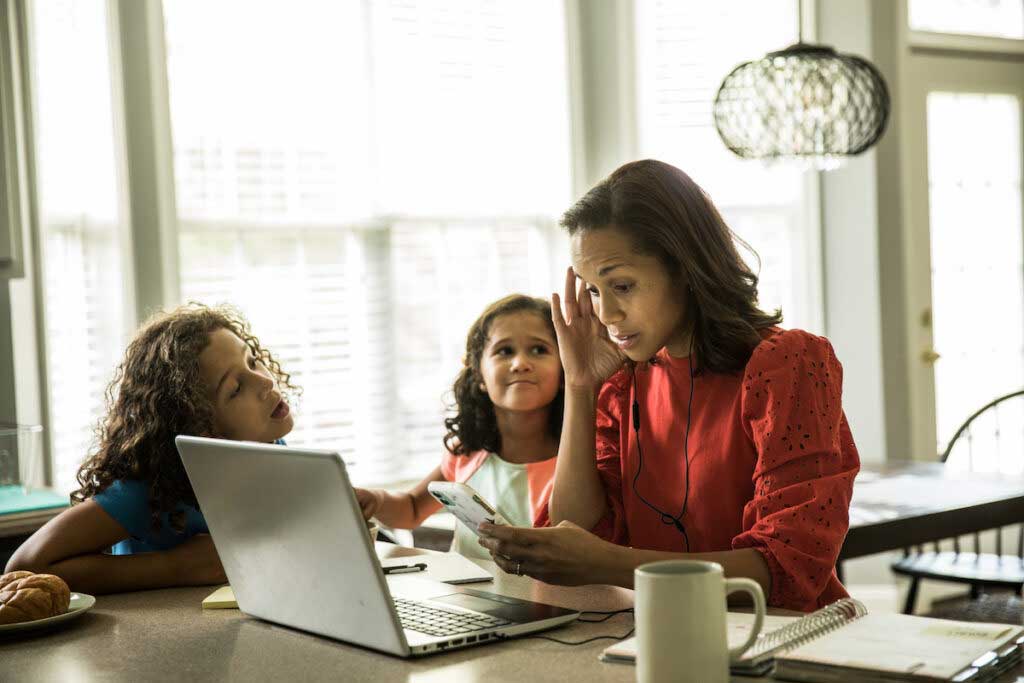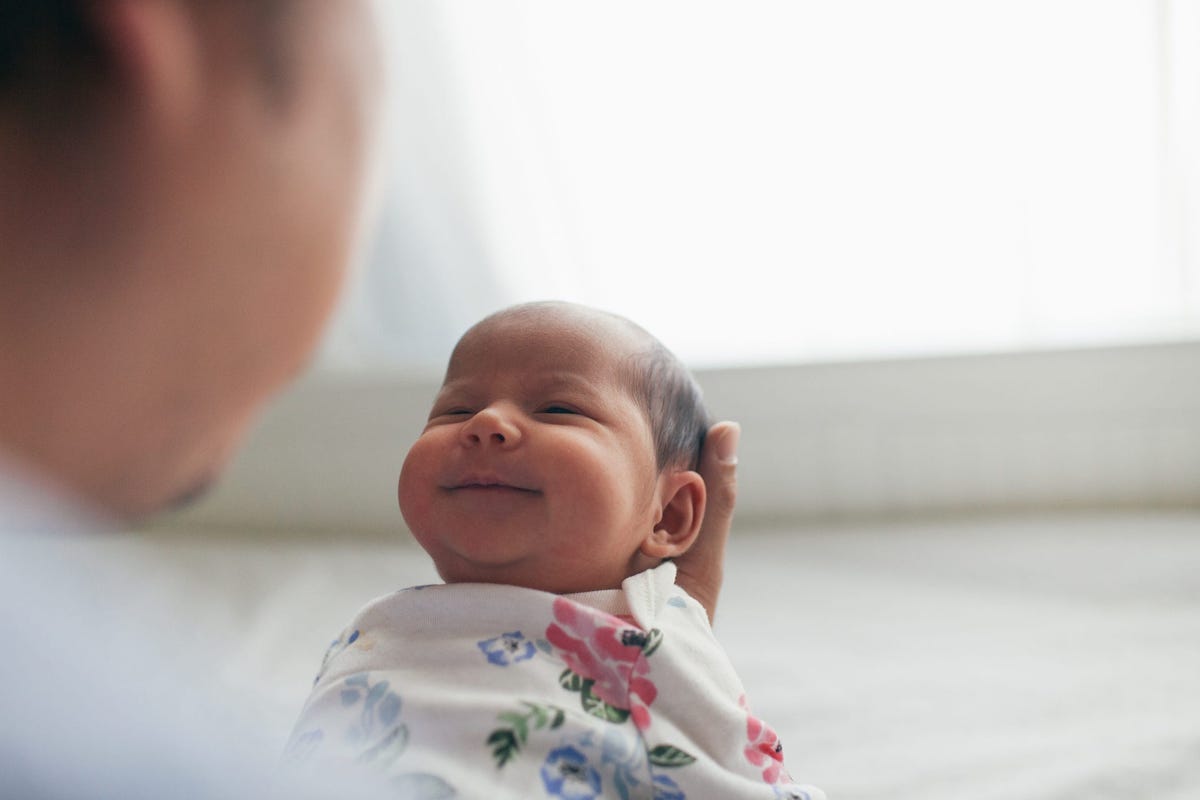The U.S. has no federally mandated paid parental leave. This is such a familiar political refrain that I think it has almost lost its power. It often seems to me that everyone — on both sides of the aisle — agrees that we need this, and yet no one actually has been able to do it. The result is that instead of what we should have — at a minimum, 12 to 16 weeks of paid parental leave, federally mandated — we have a patchwork of policies. Employer-provided leave. State-based policies that provide partial wage replacement, if you can figure them out. The Family and Medical Leave Act, which mandates unpaid leave for people at employers above a certain size.
Each of these is a piece of the puzzle, but it is incomplete. Moreover, many of the ways in which that leave is provided only exacerbate inequality. Employer-provided leave is more common for higher-paying jobs, and many families cannot afford to take any loss of income, partial or complete, in order to take advantage of our state and federal policies.
This leaves me with the question: what will it take to get this policy over the line? How can we get everyone to see the value?
One possible answer: keep focusing on making it more and more visible why it matters for babies. We already know, from existing research, that the introduction of unpaid leave lowers infant mortality rates (by about 10%). We know from data outside the U.S. that the introduction of paid leave may increase education and wages for the affected children in the long term.
A recent paper adds to this data, with direct evidence on the impact of state-level paid leave on infant health. The goal of today is to bring awareness to this new work, in the hopes that it can add to the drumbeat.
(Quick note: This post focuses on maternity leave, since that’s often the priority and probably where we should start. But paternity leave also has benefits and, in a perfect world, we’d have a richer set of policies.)

What is the relationship between paid leave and infant hospitalizations?
The new paper is an analysis of the impact of paid leave in New York on hospitalizations for infants, mostly for RSV.
Like most of the research on this question, this paper makes use of a policy change. This is how the authors are able to make a causal argument. In the case of paid leave, it would not be a good idea to study the impact of paid leave by comparing people who got paid leave with those who did not. The problem is that there are many other differences between these groups — income and education being most notable — and those differences could easily impact child outcomes.
Instead, the authors of this paper compare babies born before and after the introduction of paid parental leave in New York State in 2018. Babies born before the leave was available have moms who could not have taken it up; for babies born after, this was an option. Not all moms were affected — some didn’t know about or use the leave, some would have had access to paid leave anyway — but as long as the policy causes some moms to change their leave-taking behavior, you can compare the babies before and after and draw causal conclusions about the impact of paid leave. (If you’re interested, I’ve written much more on how analyses like this work.)
In this case, the policy studied is the introduction of paid leave in New York State, which happened as of January 1, 2018. The policy, at inception, provided up to eight weeks of paid leave to most private and state employees, which could be taken within the first 12 months of life. (This has been extended to 12 weeks of paid leave now, but it started at eight during the time period of the study.)
The outcomes the authors consider are hospitalizations and ER visits for infants under eight weeks, both overall and for RSV in particular. Hospitalizations are obviously an extreme outcome, since infants can be ill without being taken to the hospital, but this outcome has the advantage of being well measured.
Because respiratory illnesses are seasonal, it’s actually not enough to just compare babies before and after January 1, 2018. Instead, the authors use states around New York, and older data from New York, to predict what they think the time path of illness in New York in the absence of paid leave would be. They then compare that with the actual level of illness. If the actual level is lower, it suggests that the policy impacted illness rates.
The observed illness rate is lower in New York after the new policy. The authors calculate an 18% decline in all hospitalizations and ER visits, and a 27% decline in RSV in particular. They do not find a similar change for kids ages 12 to 24 months, which suggests that this effect is really isolated to the ages where the change in policy would have changed behavior. (Note: this whole study occurred before the new RSV vaccines were available, so that’s not driving these results).
How does this work?
A reasonable question to ask here is why. Why does this policy matter in this way?
The simplest and probably correct answer is that when moms do not have access to this paid leave, they go back to work before their child is eight weeks, and the baby will often go to a care environment that involves other children. Child care centers are often sources of illness. For older kids, this is just part of life, and it can help develop some longer-term immunity. But for young infants, these illnesses can be more serious. More paid leave means more time with mom early on, and more time protected from these viral illnesses.
A baby under eight weeks with RSV can often be extremely sick; they can die. It would not be surprising if these results were a large part of what is driving the infant mortality impacts we see in existing work. New York has since extended its paid leave to 12 weeks. A length of 12 to 16 weeks seems to be the sweet spot. We do not see much benefit in the data of extensions past four months.
The bottom line
The bottom line of this paper is that paid parental leave prevents infant illness. We know this is true for RSV and it is likely true for other serious illnesses as well.
For states that do not have paid leave, this paper is yet another reason to introduce it. For the federal government, it should be a push to finally get this done. However, we’ll need strong support, particularly from the business community, to make it happen. In my home state of Rhode Island, for example, they moved the needle from six to eight weeks of paid leave last year, despite many legislators and advocates pushing for twelve. It’s an improvement but still not nearly where we need to be.
My most honest viewpoint is that we need to provide paid leave because it is unethical not to do so. I do not see how people want to live in a society in which it’s common for women to have to go back to work two weeks (or less) after giving birth. This seems just completely wrong. Even if it didn’t matter at all for babies, I believe we should still do it because it is cruel to expect women to return to work so quickly. However, this appeal to the better nature of man does not seem to have worked so far; perhaps in that absence, better data will.
Community Guidelines















Log in
“State-based policies that provide partial wage replacement, if you can figure them out.”
I’m so fortunate to live in Washington state, where we have paid leave (at least part of your income) up to 18 weeks (if you’re the birthing parent, 12 for non-birthing parent). But man was that one of the most confusing things I’ve ever applied for! Doesn’t help that you can’t apply until after baby is born. I do worry that lower income folks may not be aware of the leave option, or have the ability to successfully complete the application needed for the full set of leave (and actually it was 2 apps, but I digress).
Anyway, thanks for the great write up on this new data point to add to our back pockets when discussing paid leave.
Yes, this is a huge piece of the puzzle when we’re relying on this patchwork of different states with different leave policies! I am in California, and I am a lawyer, and I found it SO hard to figure out how to apply for leave. And then they mistakenly mailed my checks to the wrong address and figuring out how to get them re-issued took about 10 phone calls and another 3 weeks. What an impossible system.
Love this newsletter!! Great data, thank you guys. What can we be doing as individuals to promote policy change? Has anyone had success in working with their company or HR department to push for these changes?
I am an HR consultant and recently convinced a client to offer 12 weeks of paid parental leave by showing that the absence of such a policy was an obvious contradiction to their mission and organizational values. I think that approach, coupled with data that you can connect to an organization’s bottom line (i.e., make the “business case” for paid parental leave), is a good place to start.
Much of the reason we are in the rotten situation we are as a society is due to two-working parent households. Any policy that incentivizes mothers working outside the home is detrimental to children in the long run.
There isn’t any evidence for this claim in the data. I discuss this extensively in Cribsheet, and elsewhere, but the evidence simply doesn’t support the claim that it’s better to have a stay at home parent. This can be a great option if that is what works for your family, but two working parents is also a great option.
I would also ask that we keep these comments supportive of the range of choices community members make.
“We do not see much benefit in the data of extensions past four months.” … Just because it’s difficult to measure the effects of love bonding does not mean they exist. I’ve been lucky to have benefitted from two leaves longer than 16 weeks. To go back at 16 weeks would have been absolutely heart wrenching. I don’t expect to see a federal policy in the US that’s longer than this at this time, but other countries offer this as an option for a reason. I would have gladly taken a year’s leave after one of my births if I could have; after another birth I was ready to go back closer to 16 weeks. We should aim from what is achievable now, but let’s not say there aren’t benefits for longer leaves for the mothers who want to / are able to take them.
[Also, I would like to see a further improvement in commenting functionality. Although I made a comment from a landing page, it seems to have shown up as a reply to a chain of comments. I can’t see a way to delete my comment, which normally should be easy to do.]